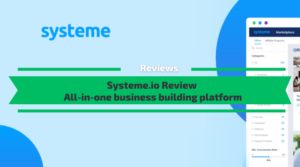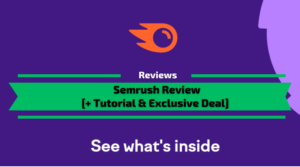We Help You Start, Grow, & Monetize Your Online Business 💰👍
➡ Check the advertising offer ⬅ ➡ Check the consulting services ⬅
Founded in 2004, Monetize.info is an award-winning online business and digital assets monetization magazine for digital creators (bloggers, influencers, affiliate marketers, entrepreneurs, and growth hackers). With almost 200K readers annually, we are among the most popular monetization publications focusing on the new creator economy.
Here at Monetize.info, we help website owners and companies grow and monetize their digital assets (websites, social media accounts, software). Whether new to affiliate marketing or looking to dip your toes into growth strategies, we support your needs. See how we can help you.Check over 300 well-researched, complete guides that will help you earn more.
Join Our Community of 21,000+ Affiliate Marketing Enthusiasts
Learn creative, low-cost strategies to help you acquire and retain more customers and monetize your assets or skills. Your FREE membership includes exclusive tutorials, tools, deals, and resources.
1. I want to Monetize my Business with Affiliate Marketing
81% of advertisers and 84% of publishers use affiliate marketing worldwide. Learn how to monetize your website through affiliate marketing and get your profit share of this multi-billion dollar industry.
![Affiliate Marketing for Beginners [Complete Guide]](https://monetize.info/wp-content/uploads/2019/04/Affiliate-Marketing-for-Beginners-Complete-Guide-300x167.png)
2. I want to Start, Grow, & Monetize My Website
Blogging is a marketing channel that helps businesses increase revenue, brand awareness, and blog subscribers and support business growth. Check out our tutorials on starting, monetizing, and growing a niche website.

![105+ Blog Income Reports [How Bloggers Make Money]](https://monetize.info/wp-content/uploads/2022/08/105-Blog-Income-Reports-300x167.png)
![Best Ad Networks For Publishers [Top 21]](https://monetize.info/wp-content/uploads/2020/10/Best-Ad-Networks-For-Publishers-Top-21-300x167.png)
3. I want to Grow & Monetize my Online Business
Learn how to make money online quickly and safely.

![How to start and grow a digital marketing agency [Actionable Guide]](https://monetize.info/wp-content/uploads/2020/08/How-to-start-and-grow-a-digital-marketing-agency-Actionable-Guide-300x167.png)
4. I want to sell more through e-Commerce
Global e-commerce sales will reach $6.3 trillion in 2024. However, competition from giants like Amazon, JD, and Walmart is fierce. Check out our in-depth e-commerce guides, which will help you sell more and better.
5. I want to start and grow my affiliate program
6. I Want to read Reviews of Tools and Services

Helpful resources
- CyberSecurityMag is an award-winning online publication for people who are interested in cybersecurity.
- ➡️ Add your helpful resource here! ⬅️
- TEN.info combines the pursuit of interesting and intriguing facts with the innate human desire to rank and list things.
- MediaDigi.com helps companies in finance, business, cryptocurrencies, and digital marketing niches to gain a targeted audience for their business through SEO.
 Monetize.info We Help You Grow & Monetize Your Online Business!
Monetize.info We Help You Grow & Monetize Your Online Business!



















![How to Start a Forum and Make Money in 2020 [Complete Guide] How to Start a Forum and Make Money [Complete Guide]](https://monetize.info/wp-content/uploads/2019/09/How-to-Start-a-Forum-and-Make-Money-The-Complete-Guide-300x167.png)
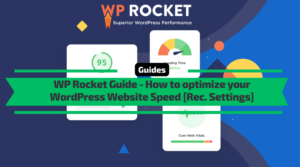




![How to Start & Grow a Subscription eCommerce Business [Actionable Guide]](https://monetize.info/wp-content/uploads/2020/05/How-to-Start-Grow-a-Subscription-eCommerce-Business-Actionable-Guide-300x167.png)
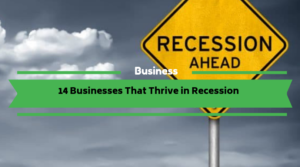
![How to convert your visitors into future buyers [Complete Guide]](https://monetize.info/wp-content/uploads/2020/06/How-to-convert-your-visitors-into-future-buyers-Complete-Guide-300x167.png)
![Content Types To Create for eCommerce [Complete Guide]](https://monetize.info/wp-content/uploads/2020/06/Content-Types-To-Create-for-eCommerce-Complete-Guide-300x167.png)
![How to build backlinks for eCommerce [The Ultimate Guide]](https://monetize.info/wp-content/uploads/2020/07/How-to-build-backlinks-for-eCommerce-The-Ultimate-Guide-300x167.png)
![Advanced SEO For E-commerce Websites [7 Best Practices]](https://monetize.info/wp-content/uploads/2020/07/Advanced-SEO-For-E-commerce-Websites-7-Best-Practices-300x167.png)
![Must Read Books For Every eCommerce Entrepreneur [+ Video Summaries]](https://monetize.info/wp-content/uploads/2020/08/Must-Read-Books-For-Every-eCommerce-Entrepreneur-Video-Summaries-300x167.png)



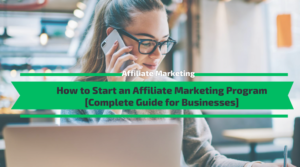







![LinkWhisper Review [Internal links on AutoPilot]](https://monetize.info/wp-content/uploads/2020/05/LinkWhisper-Review-300x167.png)





